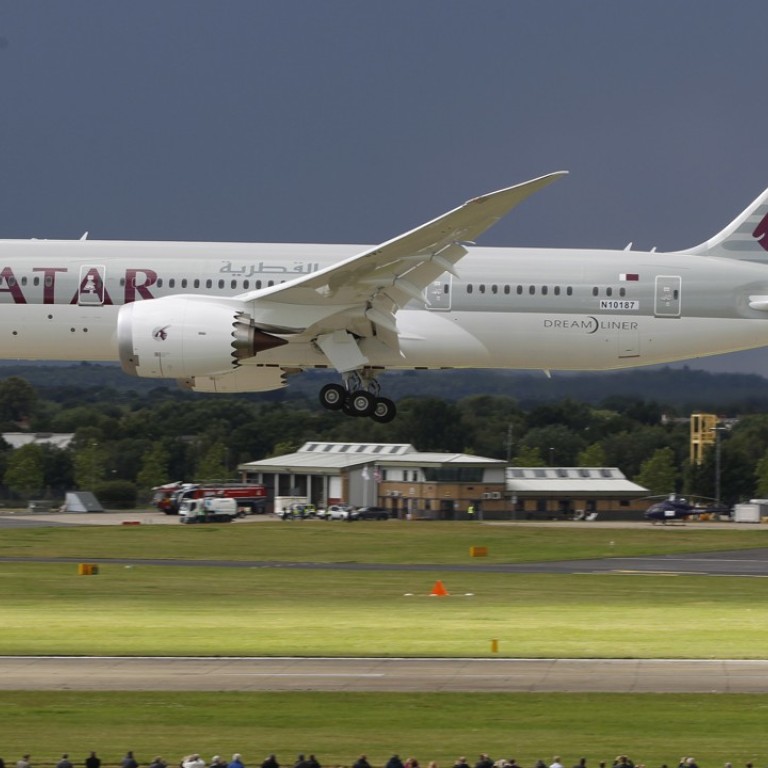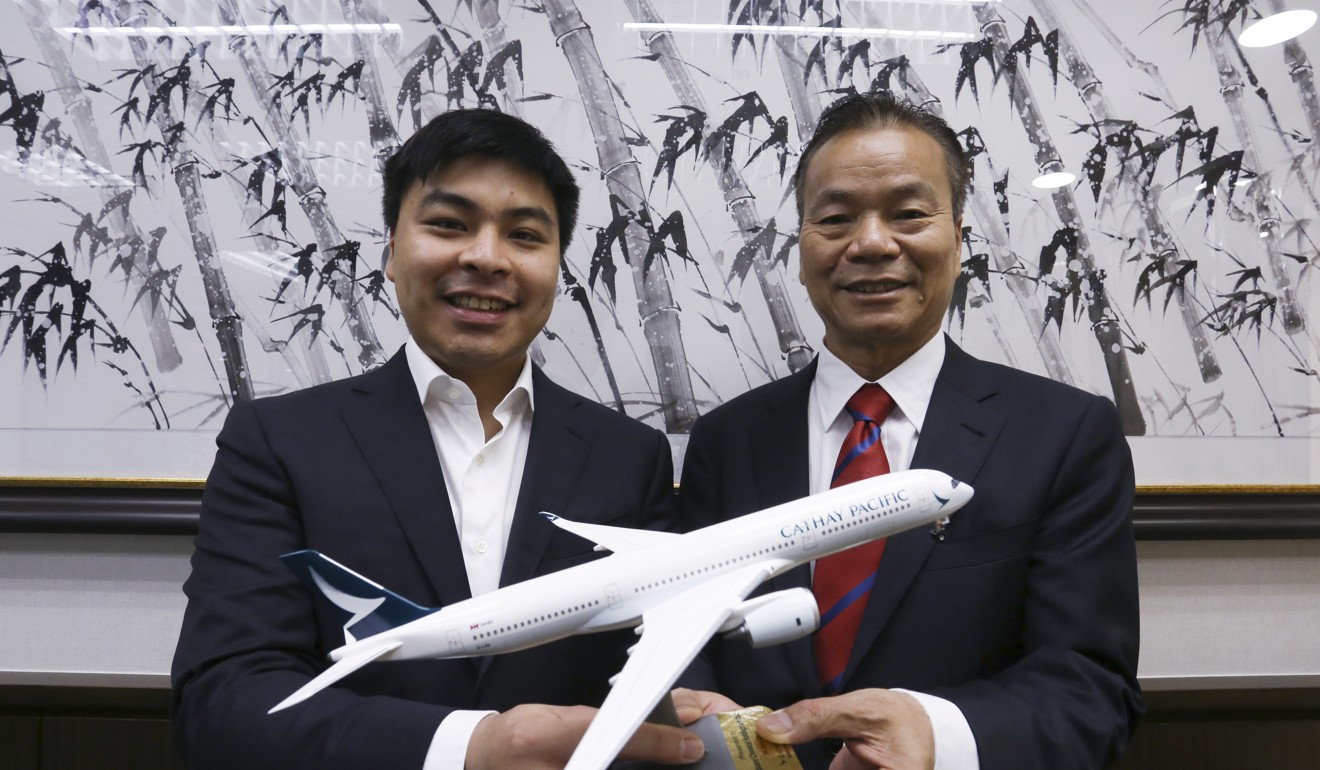
Qatar Airways becomes third largest shareholder of Cathay Pacific with HK$5 billion share purchase
Investor Kingboard Chemical sells its entire 9.61 per cent stake in Cathay Pacific to the Middle Eastern carrier for an HK$800 million gain
The state-owned Middle Eastern carrier, which bought the stake from Hong Kong industrial company Kingboard Chemical, became Cathay Pacific’s third biggest shareholder.
Qatar Airways Group CEO Akbar Al Baker heaped praise on his new acquisition as “one of the strongest airlines in the world, respected throughout the industry and with massive potential for the future,” and his counterpart, Cathay Pacific CEO Rupert Hogg, said his airline “looked forward to a continued constructive relationship.”

Air China, the airline’s second largest shareholder, had a more cautious response, having had no contact with Qatar as of yesterday. Asked about the exact benefit to Cathay Pacific resulting from the decision, board secretary Zhou Feng told the Post it would be “hard to project”, adding “everything depends on how we cooperate in future”, but noted the addition of a new airline shareholder “was not a bad decision,” as it could help “facilitate the decision-making” of Cathay Pacific’s business.
Hong Kong conglomerate Swire Pacific remains the largest shareholder with a 45 per cent stake and Air China controls 29.99 per cent, while the remaining shares not owned by Qatar Airways are publicly traded.
Who is the investor with a 9 per cent stake in Cathay Pacific in just six months?
Qatar Airways has more than 180 passenger aircraft flying to almost 150 destinations while Cathay Pacific and Cathay Dragon have a similar number of passenger planes flying to 100 destinations.
Cathay Pacific has had a difficult few years, facing mounting competition in particular from Middle Eastern, mainland Chinese which now offer flights to the same destinations served by Cathay Pacific. The carriers usually include a stop at their home airports, making their fares cheaper than Cathay Pacific’s direct flights.
Last year, it lost HK$575 million and HK$2.05 billion in the first half of this year. It cut 600 jobs in May as part of a range of measures to steer it back to profitability. Cathay now has a mainland Chinese and Middle Eastern carrier among its shareholders, the types of airlines that have mounted tougher competition.
On news of the share sale, Cathay Pacific shares closed Monday down 1.52 per cent or HK$0.20 at HK$13.00, but shares were down as much as 4.85 per cent intraday while Kingboard Chemical shares closed lower by HK$0.55, down 1.14 per cent, to HK$47.85.
Andrew Collins of Strategic Aviation Consultancy said Qatar’s interest showed confidence in Cathay Pacific’s business.
Ellis Taylor of aviation journal Flight Global suggested that Cathay’s response “shows perhaps some uneasiness with the situation that they now find themselves in”.
“Three major shareholders, all with different and potentially conflicting interests,” Corrine Png, an independent aviation analyst noted, referring to Swire, Air China and Qatar Airways. “This may not necessarily be favourable for Cathay as it is facing operating challenges and undergoing transformation. Moreover, Air China and Qatar Airways have political interests as well given that they are state-owned.”
Cathay Pacific boosts rewards for frequent fliers, even those in cheaper seats, to retain loyalty
Qatar, the tiny oil-rich Persian Gulf nation, has recently come under economic attack by its neighbours, Saudi Arabia, the United Arab Emirates and Bahrain, as well as Egypt, and has been seeking ways to expand its economy outside the region.
Saj Ahmad, chief analyst of Dubai-based Strategic Aero Research said he did not believe Qatar Airways has indirectly bought favour with Beijing. “If anything, this move will have irked Chinese officials because they may now have to move to protect their shareholding of Cathay and not see it watered down.”
A source at Cathay Pacific familiar with the matter said it was aware of Qatar’s interest over the weekend and was supportive of it.
“Qatar Airways’ close to 10-per cent stake could be enough to prevent Air China taking over Cathay in the near future, even if it had the support of Swire Group. Rupert Hogg may be buckling up for some turbulence over the coming months as Cathay digests the move,” Taylor, the journal’s Asia finance editor, said.
Hong Kong Airlines adds major routes, in new threat to Cathay Pacific
With a marquee Asian airline in its portfolio, Doha-based Qatar Airways now has a footing in a region tipped to be the fastest-growing air travel market.
The International Air Transport Association expects some 7.8 billion passengers to travel in 2036, double today’s number. More than half of that growth will come from the Asia-Pacific region, with 2.1 billion new passengers taking to the skies.
The Doha-based carrier has been seeking investments in other airlines but recently dropped a bid to buy into American Airlines, which snubbed its overtures. Qatar Airways already has a 20 per cent stake in British Airways owner International Airlines Group, 10 per cent of South America’s largest carrier LATAM and 49 per cent of Italian airline Meridiana.
Additional reporting by Stuart Lau

